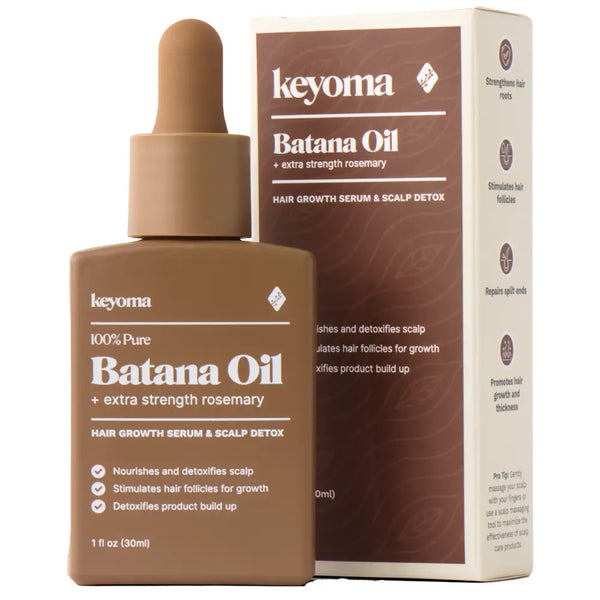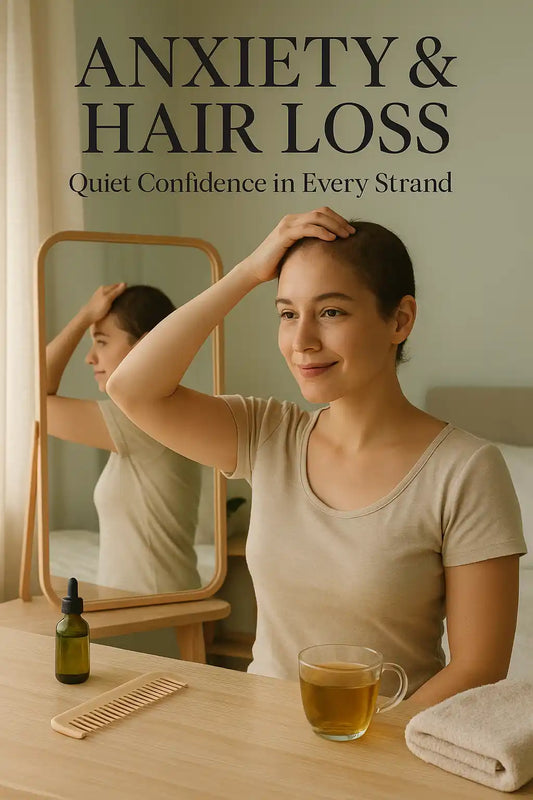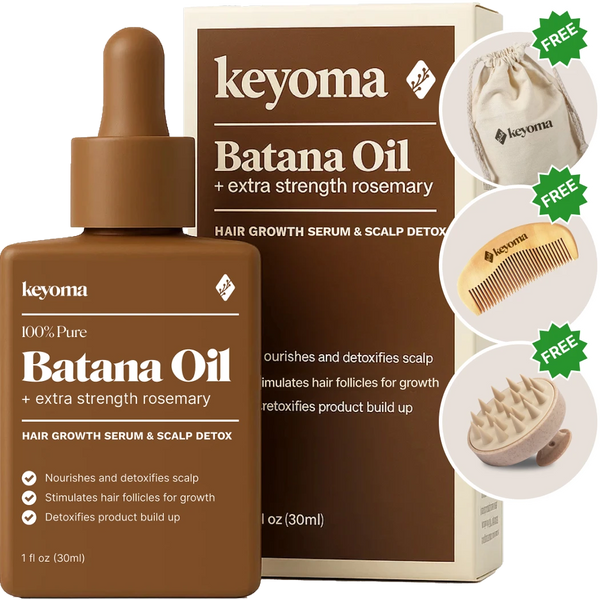In this article
We already know stress can trigger hair loss—but what about its longer-term partner, anxiety? Around 40 million adults in the U.S.—about 18% of the population—live with some type of anxiety disorder, making it the most common mental health issue nationwide.
Anxiety disorders can run in families, stem from brain chemistry, or result from past traumatic events. If you live with anxiety, you may notice your hair thinning, falling out more after brushing, or even forming bald patches.
If you're young and in good physical health, ongoing anxiety could explain why your hair is shedding more than usual.
How Stress Affects Hair Growth
Ongoing stress increases your risk for issues like anxiety, depression, heart problems, and poor sleep, according to the National Institutes of Health.
Chronic stress also affects your hair. New studies help explain how. In 2021, researchers found that a key stress hormone—similar to cortisol in humans—can push hair follicle stem cells into a prolonged rest, stopping new growth.
The good news is, if stress causes your hair to shed, the change is usually reversible. You have access to effective treatments that support regrowth and slow further loss.
How Anxiety Can Trigger Hair Loss
Yes, stress and anxiety can affect your hair more than you think. They don’t only trigger general shedding—they also contribute to three specific hair loss conditions:
Telogen Effluvium
- Stress shifts your follicles into rest mode, slowing growth and making hair fall out more easily.
- Triggered by anxiety, poor diet, hormonal shifts, or medications
- Hair sheds with minimal friction like brushing or washing
- Usually temporary, lasting less than six months
Trichotillomania
- This compulsive condition makes you pull out your own hair to cope with anxiety or boredom.
- Involves hair-pulling from the scalp, face, or body
- Often linked to stress, OCD, or trauma
- Treatable with therapy and medication
Alopecia Areata
- This autoimmune disorder makes your immune system attack your hair follicles.
- Causes sudden round bald patches
- May lead to eyebrow, eyelash, or full-body hair loss
- Sometimes triggered by emotional stress
While anxiety isn’t the sole cause, it can set off or worsen these conditions. If you're noticing unusual shedding, don’t ignore it—your mental health and hair health are deeply connected.
10 Ways to Reduce Hair Loss From Stress and Anxiety

Stress-related hair loss often doesn’t last forever—and that’s the good news. You can take back control. When you manage your stress, your hair usually grows back.
If you’re dealing with trichotillomania, you may need therapy or behavioral support. Most telogen effluvium cases settle on their own about six months after they begin.
If you’re noticing hair thinning from stress, try these 10 ways to support regrowth and cover sparse areas:
1. Know the Signs
First, we need to recognize the signs of stress-related hair loss. You might notice sudden shedding, thinner areas on your scalp, or more strands left on your pillow, in the shower, or on your brush.
Spotting these symptoms early helps you take action fast and protect your hair from further loss.
2. Only Use Natural Oils on Your Hair
We should swap chemical dyes and hot tools for natural oils when caring for our hair. Oils like batana oil (known for its strengthening and moisturizing benefits), rosemary, coconut, and argan support healthier strands without causing damage.
You’ll get better results by massaging these oils into your scalp and rinsing with cool or lukewarm water. Hot water dries out your scalp, causes irritation, and weakens your hair over time. Natural oils protect, nourish, and help your hair look fuller without the risk of breakage.
3. Healthy Diet
To grow healthy hair, you need to lower your stress levels and eat better. Start by choosing meals that are full of nutrients—especially ones rich in vitamins and minerals. Biotin and protein are essential, and you can find them in simple foods like eggs, milk, and bananas. These help strengthen not just your hair, but also your nails.
And if you are not getting enough from your diet, you might consider taking supplements. Vitamins C and E, along with omega-3 fatty acids, are packed with antioxidants. Studies suggest they can support scalp health and even reduce hair shedding, which may lead to fuller-looking hair.
But before adding any new supplement to your routine, talk to your doctor. Especially if you are already taking medication. It is always better to be safe than sorry.
4. Try Hair-Safe Supplements
You can take supplements to fill any nutrient gaps in your diet. Biotin, iron, zinc, and vitamin D help support stronger, healthier hair.
Before starting any new supplement, speak with your healthcare provider—especially if you’re managing stress or anxiety along the way.
5. Drink Enough Water
When you do not drink enough water, your body feels it—and so does your hair. Dryness, brittleness, and even shedding can creep in when hydration levels drop.
Drinking enough water every day is not just good for your body. It also helps your scalp stay balanced and your strands stay strong. And the best part? It is one of the easiest things you can do to support healthier hair. Just keep sipping.
6. Move Your Body Often
Making time for exercise helps lower stress and supports healthy hair. When we stay active, our bodies release endorphins—natural chemicals that lift our mood and ease tension.
Movement also boosts blood flow, including to your scalp, which can improve hair growth. Whether you walk, stretch with yoga, or play a sport, regular activity strengthens both your body and your strands.
7. Massage Your Scalp Gently
Massaging your scalp helps boost circulation and stimulate your hair roots. When you use your fingertips to gently rub your scalp in slow, circular movements for about 5 minutes each day, you support healthier hair growth.
You can also mix in a few drops of essential oils like lavender, rosemary, or peppermint. These oils may not only nourish your scalp but also help calm your mind and ease stress.
8. Sleep Long Enough to Recover
When you deal with anxiety and stress, your sleep often suffers. You might find it harder to fall asleep or stay asleep, which can upset your body’s natural balance.
Aim to get 7 to 9 hours of quality sleep each night. Stick to a regular sleep schedule by going to bed and waking up at the same time daily. Create a restful environment by keeping your room cool and dark, limiting noise, and removing electronic devices from your bedroom.
9. Avoid Harsh Hair Products
Many shampoos contain harsh ingredients that weaken your strands and lead to breakage or shedding. To protect your hair, we recommend steering clear of sulfates, polyethylene glycol, and parabens.
Instead, choose shampoos with ingredients that strengthen and thicken each strand. Some formulas with keratin, biotin, amino acids, or panthenol (vitamin B5) can boost shine and give your hair a fuller look.
You can also ask your stylist for guidance or check reviews before buying.
If you prefer a more natural approach, try products made with batana oil or other natural oils. These options support hair health without exposing your scalp to harsh chemicals.
10. Talk to a Specialist
If stress or anxiety starts to overwhelm you, talk with a therapist or mental health expert. To support healthy hair, you need to address the root cause of emotional strain, not just the symptoms.
Reverse Hair Loss With Keyoma and Start Managing Stress Today
You now understand how to slow hair shedding caused by stress. Tackling stress-related hair fall takes effort. You need to recognize the warning signs and learn how to manage pressure.
Focus on what you eat—your diet directly influences your hair’s strength. Make time to rest, stay hydrated, consider supplements, and talk with a specialist if needed. These steps help you lower stress and protect your hair.
For extra support, add Keyoma’s pure batana oil to your routine and give your hair what it needs to grow back stronger.
Featured Product
100% Pure Batana Oil + Rosemary
↓Best Batana Oil to Buy↓
1 Month
Subscribe & Save
- 30-day supply delivered monthly $35
- 30% off for life $6
- Free haircare essentials kit $33
- Free custom wooden comb $10
- Free scalp massager $15
- Free eco-friendly travel bag $8
- 30-Day Money Back Guarantee
- Free Shipping
- Online portal for easy cancel, skip, or pause.
1 Month One Time Purchase

- 30-day supply $50
- 30% off for life $6
- Free haircare essentials kit $33
- Free custom wooden comb $10
- Free scalp massager $15
- Free eco-friendly travel bag $8








